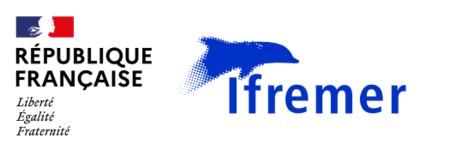Water Framework Directive
The Water Framework Directive (WFD) is a directive that was adopted by the European Parliament and Council on 23 October 2000. It defines a European Union framework for the management and the protection of European bodies of water to better manage aquatic environments and play a strategic and ground-laying role in water policy. It sets ambitious goals for the preservation and restoration of the status of surface waters (freshwaters and coastal waters) and for groundwater. The older, more specific directives, such as those on drinking water, bathing water, urban wastewater treatment and water pollution by nitrates from agriculture are still in force.
WFD objectives
Based on management plans initiated in 2010, the WFD places priority on the protection of the environment, sustainable water use, and ensuring that water quality does not deteriorate. The objective was to obtain good status by 2015 for all groundwater and surface waters, including estuarine and coastal waters before the implementation of a new management plan in 2016.
The goals, management plan and the set of measures taken are reviewed and updated every six years.
To meet the goals, the WFD defines the working method, common to all 27 Member States, based on four main documents:
- an inventory that characterises water systems and analyses the problems that need to be addressed,
- a management plan that sets the environmental objectives,
- a programme of measures that defines the actions to take to meet the goals,
- a monitoring programme that assesses water quality relative to the initial goals.
The WFD Management Planning Cycle
IFREMER and the WFD
IFREMER’s missions
IFREMER is in charge of
- the overall coordination of the WFD in France,
- thematic implementation covering methodological developments, optimisation of indicators, data collection and processing using the existing IFREMER networks,
- implementation of the operational monitoring programmes with the help of decentralised IFREMER laboratories and/or external partners,
- compiling data.
IFREMER’s main institutional partners are the ONEMA, French water agencies and the DEB.
WFD monitoring instruments operated by IFREMER Monitoring networks
Observation and monitoring can sometimes cover the same field of action, but are distinct. Observation is an tool for acquiring knowledge and carrying out scientific activities. Monitoring is a tool implemented to comply with regulations or address a specific public policy issue.
Article 8 of the WFD calls for the implementation of a monitoring programme on water bodies to “establish a coherent and comprehensive overview of water status within each river basin district”.
To meet this requirement, each water basin identified specific surveillance networks as part of its River Basin Management Plan (RBMP). IFREMER’s national monitoring networks REPHY (hydrology and phytoplankton) and ROCCH (chemical contaminants) are part of national management plans along with a certain number of networks operated on the regional level, particularly for monitoring the quality of benthic habitats, nutrients, and chemical contaminants whose strategies can be specific to each regional seaboard.
Databases
WFD data are compiled in the QUADRIGE² database that is the national reference database for coastal water data. QUADRIGE² involves methodological tasks (compatibility with the SANDRE system) and operational tasks (entering data, qualification, statistical processing, utilisation, data transmission). The QUADRIGE² database provides an operational link with the French Water Information System (SIE) and the Water Quality Status Assessment System (SEEE) for reporting WFD monitoring data.
Aquaref: IFREMER’s participation
Instigated by the WFD, the national reference laboratory for monitoring aquatic environments (AQUAREF) was created in 2008 to develop tools and methods for improving the quality of monitoring data on chemical and physico-chemical parameters, as well as on biological quality. As the only partner of the consortium (BRGM, LNE, IRSTEA, INERIS) operating in marine sciences, IFREMER participates in a large range of activities geared towards the improvement of data quality. The Institute bases its work on technical standards that meet the recommendations of the European Commission and also on the development of innovative technologies to monitor a certain number of chemical and hydrobiological parameters.
